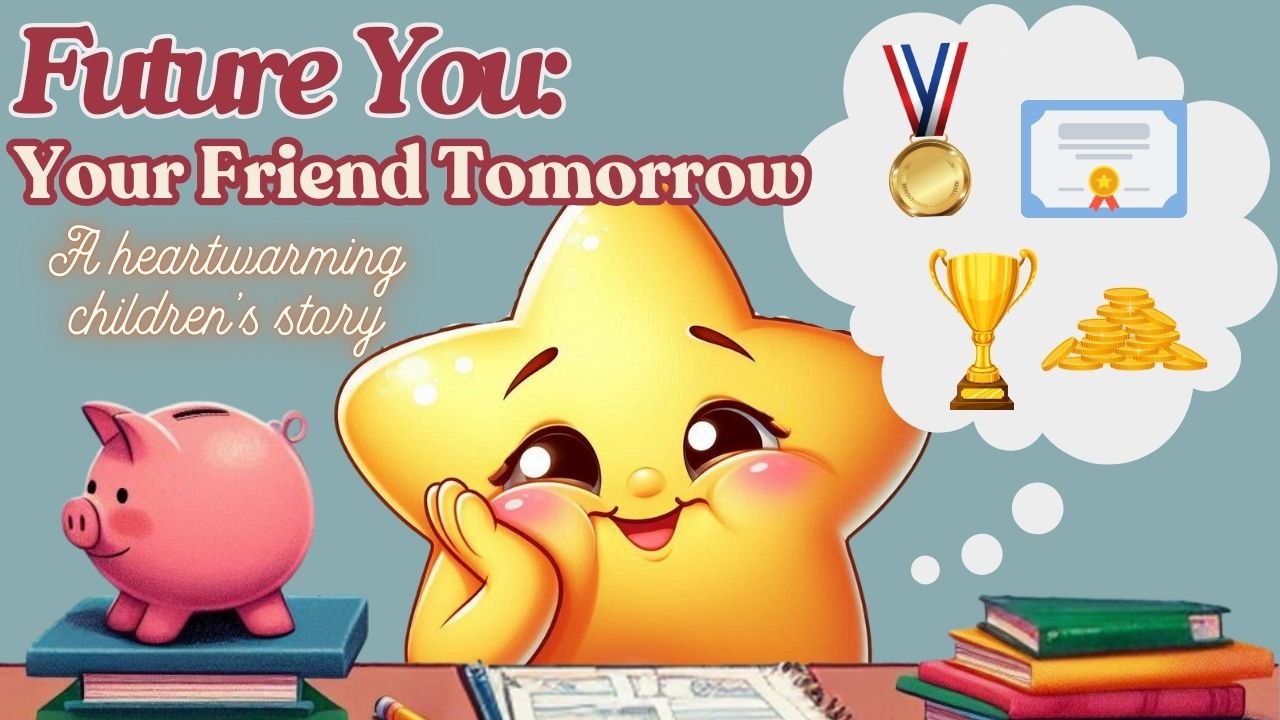The Importance of Teaching Empathy to Children
How 'Future You' Promotes Kindness and Self-Control
As parents, educators, and caregivers, one of our most important roles is to guide children in developing a strong moral compass. Empathy—the ability to understand and share the feelings of others—is a cornerstone of that compass. But how do we instill this complex and essential trait in young minds? My children's book, Future You: Your Friend Tomorrow, explores this very question by teaching children to think empathetically not just toward others, but also toward their future selves.
Why Empathy Matters
Empathy is more than just a social skill; it's a life skill. When children learn to empathize, they become better at resolving conflicts, building friendships, and navigating the complexities of human relationships. Empathy also fosters kindness and compassion, traits that are crucial in today’s world.
But empathy doesn't just help others; it also has a profound impact on the individual. A child who learns to consider how their actions affect their future self is more likely to make thoughtful decisions, practice self-control, and ultimately lead a more fulfilling life.
The Unique Approach of 'Future You'
Future You: Your Friend Tomorrow introduces children to the concept of empathy through the lens of self-reflection. In the story, Alex, the protagonist, learns from a wise grandmother that their future self—"Future Alex"—is a friend who deserves kindness and consideration. This idea that our future selves are worthy of care and thoughtfulness is a powerful tool for teaching self-control and delayed gratification.
When children think about how their choices today will affect them tomorrow, they start to see the value in making decisions that may not offer immediate rewards but will bring long-term benefits. This is empathy in action: understanding the impact of one’s actions on another being—whether that being is someone else or their future self.
How to Teach Empathy at Home
Teaching empathy doesn’t have to be complicated. Here are a few simple ways to encourage empathetic thinking in your children:
Storytelling: Use stories like Future You to illustrate the concept of empathy. After reading, discuss with your child how the characters felt and what they could have done differently to show kindness to themselves and others.
Role-Playing: Engage in role-playing exercises where your child has to consider the feelings of another person—or their future self—in various scenarios. For example, "How would Future You feel if you didn’t do your homework today?"
Modeling Behavior: Children learn empathy by watching how adults treat others. Model empathetic behavior in your own actions by being considerate, listening actively, and showing compassion.
Encouraging Reflection: Regularly ask your child how they think their actions today might affect them tomorrow. This helps them build a habit of thinking ahead and considering the consequences of their choices.
The Long-Term Benefits
When children develop empathy, they are better equipped to navigate life’s challenges with grace and understanding. They learn that self-control is not just about saying "no" to temptations, but about saying "yes" to a brighter future. By teaching children to be kind to their future selves, we’re giving them the tools they need to grow into thoughtful, caring, and resilient adults.
As you read Future You with your child, take the opportunity to explore these themes together. Encourage them to see the world—and their own future—through the eyes of empathy. It's a lesson that will stay with them for a lifetime.




